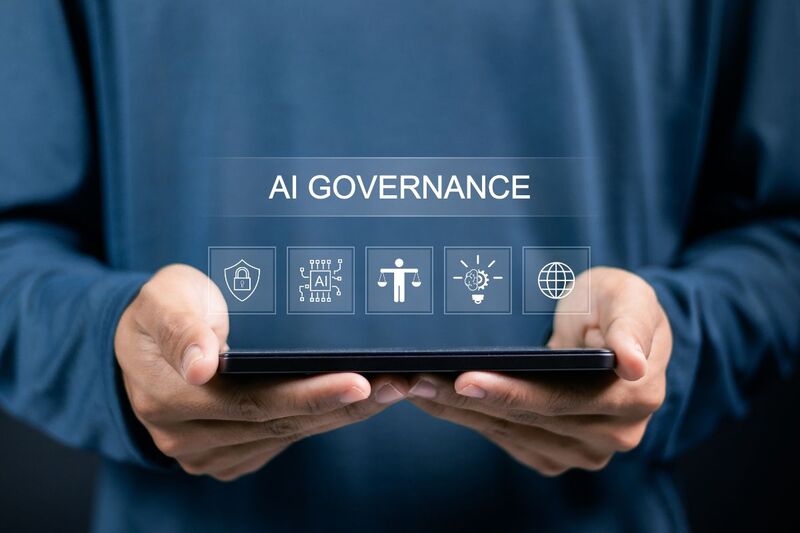AI in HR: Preparing for the 2026 Reality Where 1 in 3 Companies Use AI in Hiring

Artificial Intelligence (AI) is no longer a futuristic concept in recruitment — it is becoming the norm. A recent HR Dive study found that 1 in 3 companies globally expect AI to run their hiring processes by 2026. In Singapore, where innovation and efficiency drive competitiveness, the adoption of AI in HR is accelerating. Employers who act now will gain a decisive advantage in attracting, assessing, and retaining top talent.
Why AI in Recruitment Is Accelerating in Singapore
1. Efficiency Gains
Traditional hiring processes can take weeks, with HR teams spending hours screening resumes. AI tools can cut this time by up to 75%, allowing recruiters to focus on strategy and engagement.
2. Rising Job Volumes
Despite fluctuations, the MOM Labour Market Report recorded over 80,000 vacancies at end-2024, demonstrating consistent hiring needs. AI-powered applicant tracking systems (ATS) help manage these volumes without overwhelming HR teams.
3. Government Push for AI Adoption
In August 2025, Singapore’s Prime Minister pledged a “people-first approach” to AI adoption, with initiatives like TalentTrack+ preparing both employers and workers for digital transformation.
4. Candidate Expectations
Today’s jobseekers expect fast responses and personalised communication. AI chatbots and automated updates improve candidate experience, reducing drop-off rates.
Opportunities AI Creates for Employers
1. Smarter Screening & Matching
AI systems can analyse not only skills but also behavioural patterns and cultural fit, leading to better long-term placements.
2. Bias Reduction
When properly trained, AI can reduce unconscious bias by focusing on objective criteria. This helps build more diverse teams — a priority in Singapore’s multicultural workforce.
3. Enhanced Workforce Planning
AI can forecast turnover risk, skills gaps, and salary benchmarks using real-time market data. For example, LinkedIn’s 2025 insights show that 57% of Singapore companies plan to invest in predictive HR analytics by 2026.
4. Candidate Experience
Automated scheduling, virtual interview tools, and AI-driven feedback loops create smoother candidate journeys, which strengthens employer branding.
Risks & Considerations for HR Leaders
- Ethical Concerns: Over-reliance on algorithms may unintentionally embed bias if datasets are flawed.
- Transparency: Candidates may distrust opaque “black box” hiring systems.
- Regulatory Oversight: As AI becomes mainstream, Singapore regulators are expected to release stricter guidelines on fairness, transparency, and privacy in hiring.
- Human Touch: While AI accelerates processes, it cannot replace empathy, coaching, and relationship-building that candidates still value.
Preparing Your Organisation for 2026
1. Audit Current Hiring Processes
Identify bottlenecks and inefficiencies that AI could address, from resume screening to onboarding.
2. Select the Right AI Tools
Choose platforms that integrate with existing HR systems and comply with Singapore’s data protection standards.
3. Train HR Teams
Upskill recruiters to interpret AI insights, not just rely on them blindly. Encourage balance between automation and human judgment.
4. Pilot, Then Scale
Start with one process — e.g., AI resume screening — measure outcomes, and gradually expand to interviewing and workforce analytics.
5. Communicate with Candidates
Be transparent about how AI is used. This builds trust and positions your company as a progressive yet responsible employer.
Data Snapshot: AI in Recruitment
- 1 in 3 companies say AI will run their hiring by 2026 (HR Dive, 2025).
- 75% faster screening possible through AI ATS vs manual resume checks.
- 57% of Singapore firms planning predictive HR analytics investment by 2026 (LinkedIn 2025).
- Over 80,000 vacancies in Singapore at end-2024 (MOM).
Frequently Asked Questions (FAQ)
Q1: Will AI replace HR professionals in Singapore?
No. AI is designed to support, not replace. Recruiters will shift focus from administrative tasks to strategic talent management.
Q2: Is AI hiring fair?
AI can reduce bias when implemented correctly, but HR must audit algorithms and maintain transparency to ensure fairness.
Q3: What roles are most impacted by AI-driven hiring?
High-volume roles (customer service, tech support) benefit most, but AI is also increasingly applied to professional and leadership hiring.
Q4: How can SMEs adopt AI if budgets are tight?
Cloud-based AI hiring tools offer scalable solutions with subscription pricing, making them accessible even for smaller firms.
Conclusion
AI will transform Singapore’s HR landscape within the next 12–18 months. Companies that start preparing today — auditing processes, training HR teams, and selecting ethical AI partners — will not only hire smarter but also position themselves as employers of choice in an increasingly competitive talent market.
👉 For Employers: Explore how AI-driven recruitment can future-proof your hiring. [Connect with Reeracoen’s client services here].
👉 For Candidates: Want to experience faster, smarter job matches? [Discover career opportunities with Reeracoen today].

Disclaimer:
The information provided in our blog articles is intended for general informational purposes only. It is not a substitute for professional advice and should not be relied upon as such.
While we strive to provide accurate and up-to-date information, the ever-evolving nature of certain topics may result in content becoming outdated or inaccurate over time. Therefore, we recommend consulting with qualified professionals or experts in the respective fields for specific advice or guidance. Any actions taken based on the information contained in our blog articles are solely at the reader's discretion and risk. We do not assume any responsibility or liability for any loss, damage, or adverse consequences incurred as a result of such actions.
We may occasionally provide links to external websites or resources for further information or reference. These links are provided for convenience and do not imply endorsement or responsibility for the content or accuracy of these external sources. Our blog articles may also include personal opinions, views, or interpretations of the authors, which do not necessarily reflect the views of our organisation as a whole. We encourage readers to verify the accuracy and relevance of information presented in our blog articles and to seek professional advice when needed. Your use of this website and its content constitutes acceptance of this disclaimer.
References
- HR Dive – “1 in 3 Companies Say AI Will Run Their Hiring Process by 2026” https://www.hrdive.com/news/ai-hiring-process/758384/
- Business Times – “AI Job Interviews: What to Expect and How to Prepare” https://www.businesstimes.com.sg/opinion-features/ai-job-interviews-what-expect-and-how-prepare
- HRM Asia – “PM Pledges People-First Approach as Singapore Embraces AI” https://www.hcamag.com/asia/specialisation/hr-technology/pm-pledges-people-first-approach-as-singapore-embraces-ai/546582
- Ministry of Manpower – Labour Market Reports https://stats.mom.gov.sg
- LinkedIn Talent Insights 2025






